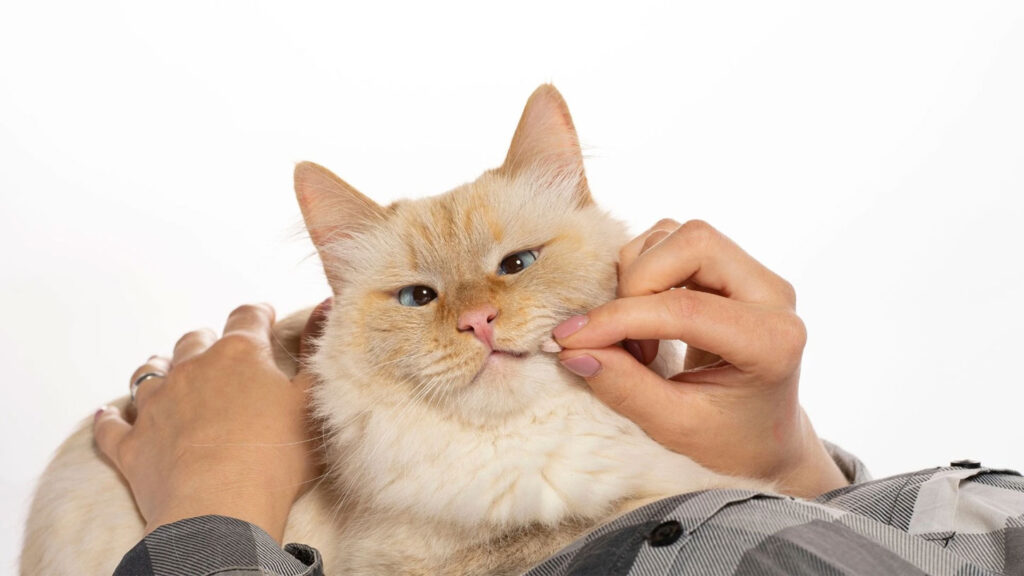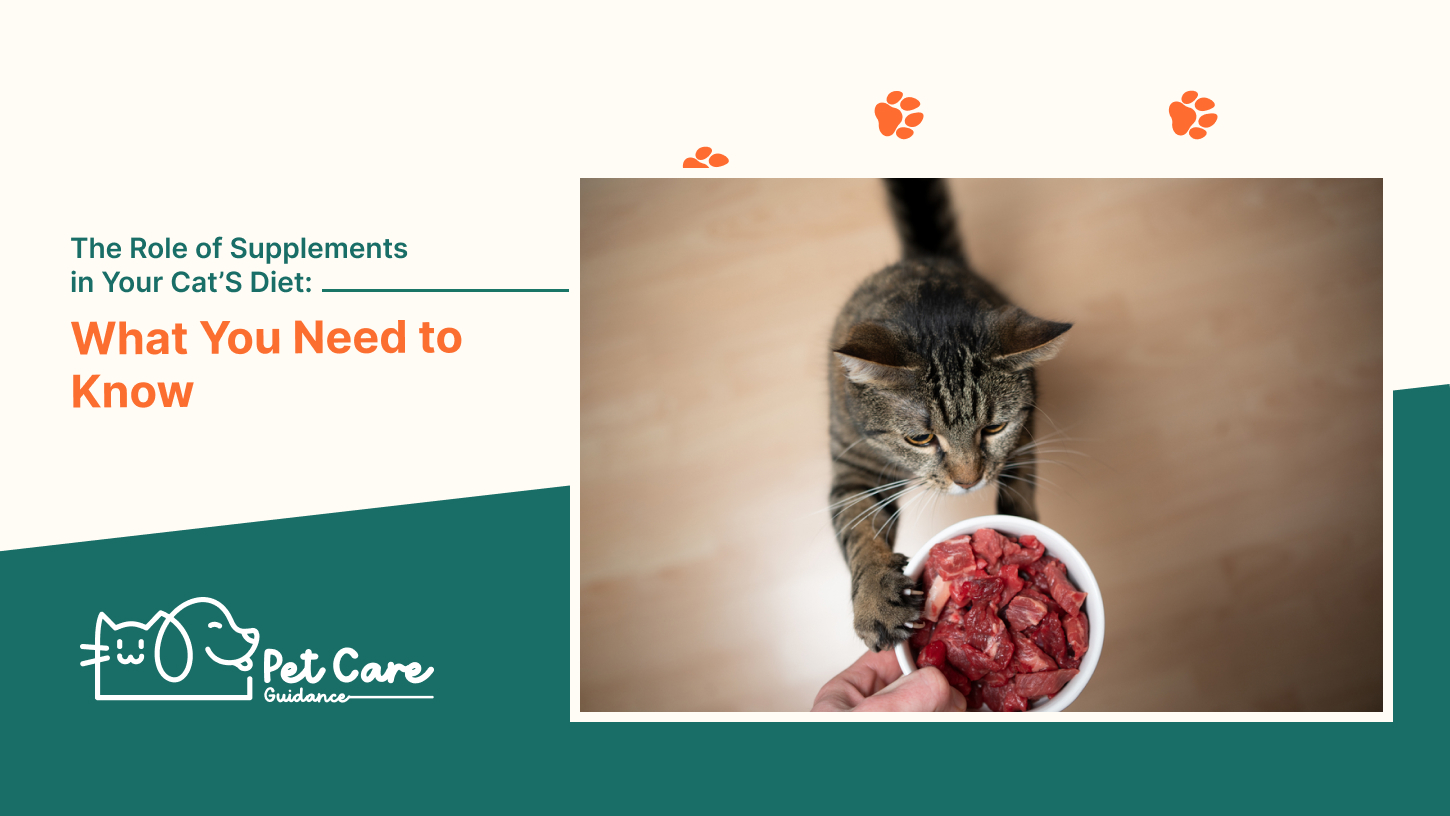Supplements in your cat’s diet should only be given with your veterinarian’s approval, as they can be harmful if not administered correctly. Consult with your veterinarian to determine which supplements are safe and necessary for your cat’s specific health needs.
Understanding The Importance Of Supplements For Cats
When it comes to your cat’s health, providing a well-balanced diet is crucial. However, sometimes a complete and balanced diet may not be enough to meet all of your cat’s nutritional needs. This is where supplements play a vital role. Understanding the importance of supplements for cats is essential in ensuring that your feline friend maintains optimal health and well-being.
Why Supplements Are Essential for Your Cat’s Health
Your cat requires a specific combination of essential nutrients to support various bodily functions. While a high-quality commercial cat food can provide most of these nutrients, it may not always meet all the individual needs of your cat. This is where supplements come in. By supplementing your cat’s diet with the necessary vitamins, minerals, and other beneficial compounds, you can help address any potential nutrient deficiencies and support their overall health.
The Benefits of Incorporating Supplements into Your Cat’s Diet
Incorporating supplements into your cat’s diet can offer a range of benefits. These beneficial additions can support your cat’s overall well-being in various ways:
Enhanced Nutritional Support: Supplements can provide additional nutrients that may be lacking in your cat’s regular diet. This can help promote healthy growth and development, support a robust immune system, and improve energy levels.
Joint and Mobility Support: As your cat ages, they may experience joint stiffness and mobility issues. Certain supplements like glucosamine and chondroitin can help alleviate these issues and promote joint health and flexibility.
Digestive Health: Supplements containing probiotics and digestive enzymes can aid in maintaining a healthy gut flora, improving digestion, and preventing gastrointestinal issues.
Skin and Coat Health: Omega-3 fatty acids, such as those found in fish oil supplements, can promote a healthy coat, reduce shedding, and alleviate skin irritations and allergies.
Immune System Support: A strong immune system is essential to ward off infections and diseases. Supplements containing antioxidants, vitamins, and minerals can help boost your cat’s immune system, keeping them healthy and resilient.
How Supplements Can Support Your Cat’s Overall Well-being
Supplements play a crucial role in supporting your cat’s overall well-being. By addressing specific nutritional needs and targeting potential health concerns, supplements can help optimize your cat’s health and quality of life.
From promoting healthy growth and development to improving joint mobility and supporting a strong immune system, the right supplements can make a noticeable difference in your cat’s overall health and vitality.
Remember, it is important to consult with your veterinarian before introducing any supplements to your cat’s diet. Your vet can provide guidance on the specific supplements that are safe and appropriate for your cat’s individual needs. With the right combination of nutrition and supplementation, you can ensure that your cat leads a happy and healthy life.

Common Types Of Supplements For Cats
Essential vitamins and minerals for cats
Cats require a balanced diet to maintain optimal health. While commercial cat foods are designed to meet their basic nutritional needs, some cats may benefit from supplements to ensure they are getting all the essential vitamins and minerals they need.
Omega-3 fatty acids and their role in your cat’s diet
Omega-3 fatty acids are essential for cats’ overall well-being. These fatty acids have been shown to support healthy skin and coat, reduce inflammation, and promote heart health in cats. While some commercial cat foods may contain omega-3 fatty acids, supplementing their diet with fish oil or other omega-3 supplements can provide additional benefits.
Probiotics and digestive health for cats
Probiotics are beneficial bacteria that can help support your cat’s digestive health. They can help promote the growth of good bacteria in their gut, which aids in digestion and nutrient absorption. Probiotics can also help alleviate digestive issues such as diarrhoea and constipation in cats. Adding a probiotic supplement to your cat’s diet may be beneficial, especially if they have a sensitive stomach or a history of digestive problems.
In conclusion, supplements can play a role in supporting your cat’s overall health and well-being. However, it is important to consult with your veterinarian before introducing any new supplements to your cat’s diet. They can provide guidance on which supplements are suitable for your cat’s specific needs and ensure their safety.
Remember, supplements should be used in conjunction with a balanced and complete diet to ensure your cat is receiving all the necessary nutrients.
Factors To Consider When Choosing Supplements For Your Cat
When it comes to choosing supplements for your cat, there are several important factors you should consider. These factors will help ensure that you are making the right decision for your feline friend’s health and well-being.
Consulting with your veterinarian before adding supplements to your cat’s diet, understanding your cat’s specific nutritional needs, and identifying potential allergies or sensitivities to certain supplements are all crucial aspects to keep in mind.
Consulting with your veterinarian before adding supplements to your cat’s diet
Your veterinarian is the best source of information when it comes to your cat’s health and nutrition. Before introducing any supplements to your cat’s diet, it is essential to consult with your veterinarian. They will have a comprehensive understanding of your cat’s specific needs and can provide guidance on what supplements may be beneficial or necessary.
Your veterinarian will also be able to recommend high-quality supplements that are safe and effective for your cat.
Understanding your cat’s specific nutritional needs
Every cat is unique, and their nutritional needs may vary based on factors such as age, breed, activity level, and any underlying health conditions. Understanding your cat’s specific nutritional needs is crucial when choosing supplements. Some cats may require supplements to address specific deficiencies or health concerns, while others may have dietary restrictions that require tailored supplementation. Your veterinarian can help you assess your cat’s nutritional requirements and recommend appropriate supplements.
Identifying potential allergies or sensitivities to certain supplements
Your cat may have allergies or sensitivities to certain ingredients commonly found in supplements. It is important to identify and avoid any potential allergens to prevent adverse reactions. Your veterinarian can help you determine if your cat has any known allergies or sensitivities and recommend supplements that are free from those ingredients. Additionally, they may suggest conducting allergy testing to gain a better understanding of your cat’s specific sensitivities.
In conclusion, when choosing supplements for your cat, consulting with your veterinarian, understanding your cat’s specific nutritional needs, and identifying potential allergies or sensitivities are critical factors to consider. By taking these factors into account, you can ensure that you are making the best choices for your cat’s health and well-being.
Frequently Asked Questions For The Role Of Supplements In Your Cat’s Diet: What You Need To Know
How Do I Know What Supplements To Give My Cat?
To determine what supplements to give your cat, consult with your veterinarian. They understand your cat’s specific health needs and can advise on safe and appropriate supplements. Always seek their approval before adding anything new to your cat’s diet.
Should I Add Supplements To My Cats’ Food?
Adding supplements to your cat’s food is usually unnecessary if they are already eating a balanced and complete diet. It’s important to consult with your veterinarian before giving any supplements to your cat as they can be harmful. Always provide clean, fresh water for your cat.
What Is A Nutrient That Must Be In A Cat’s Diet?
Cats require essential nutrients in their diet, including a nutrient called taurine. Taurine is crucial for their overall health and well-being. It is important to ensure that their diet includes adequate amounts of taurine to prevent deficiencies and related health issues.
What Supplements Do Cats Need In Homemade Food?
Cats may need supplements like Taurine, Wild Salmon Oil, Vitamin E, Vitamin B-Complex, Lite Salt with Iodine, and Psyllium Husk Powder in homemade food. However, it is important to consult a veterinarian before adding any supplements to your cat’s diet.
Conclusion
When it comes to adding supplements to your cat’s diet, it’s crucial to consult with your veterinarian. They can provide valuable insights into your feline’s specific health needs and ensure the safety of any supplements. Remember, a balanced and complete diet may not require additional supplements.
It’s always best to prioritize your cat’s health and well-being by seeking professional guidance before making any changes to their food. Keep your cat hydrated with clean, fresh water at all times for optimal health.


